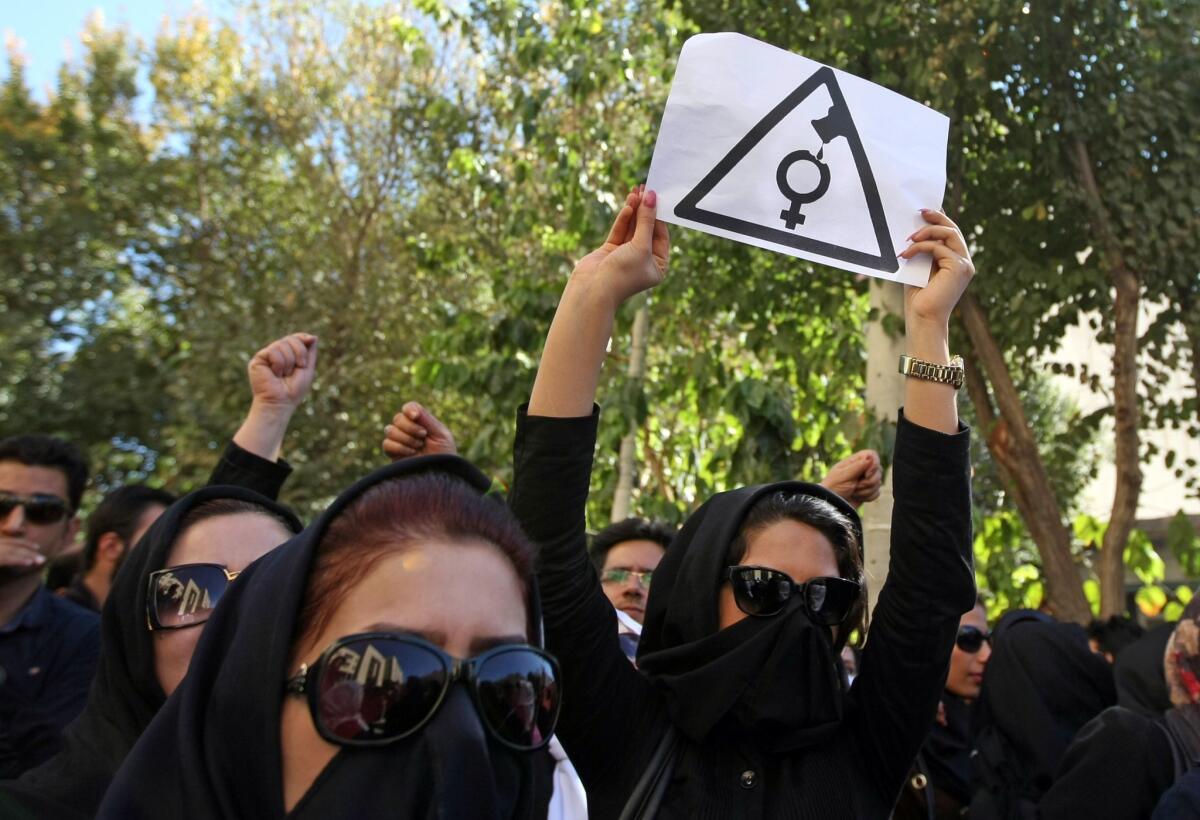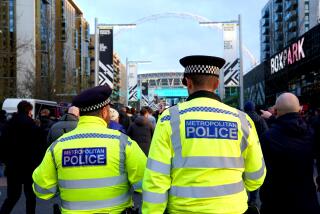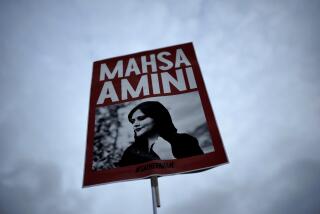Spate of acid attacks against Iranian women and girls prompts protests

Reporting from Tehran — A spate of acid attacks against women and girls in Iran’s cultural capital of Isfahan has been met with street rallies and social media protests, seemingly alarming Iranian authorities who have promised to take steps to quell the disfiguring assaults.
Iranian liberals, however, believe that the government helped set the stage for attacks against those deemed immodest in some way by enacting a parliamentary measure providing protection to citizens who act on their own to help enforce the country’s strict social mores.
At least eight or nine such attacks -- which are generally carried out by assailants on motorbikes who fling acid into their victims’ faces -- have occurred in recent weeks, with some Isfahan residents saying they suspect the number is higher.
Rallies to denounce the attacks have been held in several cities including Isfahan, in central Iran, and the capital, Tehran. Mindful of past crackdowns, however, the demonstrators generally disperse quickly when confronted by police.
On Saturday, about 50 colorfully dressed young men and women marched in downtown Tehran, shouting slogans against social conventions they likened to those of the Sunni Muslim extremist group, Islamic State.
“Where is my sister’s eye?” some chanted, referring to the loss of vision suffered by some of the victims.
Police chased the demonstrators down, arresting several of them. Afterward, riot police were posted outside the Interior Ministry building.
Iranian authorities have been seeking to show solidarity with the women who have been attacked, announcing that senior judicial officials would travel to Isfahan to investigate. But they worry about a backlash from hardliners who do not want to see any relaxation of dress codes they believe are mandated by Islam.
As with past social unrest, anger over the acid attacks has been fueled by discussions on social media networks. Only a relatively small number of Iranian urbanites have access to such platforms, reached via proxy Internet servers, but the effect on street activism is significant.
Ali, a 21-year-old university student whose last name is being withheld for his safety, said he had learned about the weekend demonstration on Facebook and rushed to join in.
“We are protesting the fact that women’s public lives are in jeopardy,” he said.
Well aware of the online activism, conservative Iranians strive to limit such influences.
“At home, I do not have Internet and Facebook, and I’ve forbidden my family – my wife and two young daughters – to watch satellite TV,” said Mehdi Qadri, a 32-year-old printing house employee.
Iranian authorities have lashed out at what they say are outsiders attempting to stir up trouble. An Iranian news photographer was arrested after taking images of a protest in Isfahan against the acid assaults.
“Foreign media are exaggerating about the acid attacks,” Interior Minister Abdulreza Rahmani Fazli declared last week.
But even conservative clerics have condemned attacks against women.
Police said several suspects had been detained, although the charges against them were unclear.
Isfahan residents say the usual mode of assault is for a pair of men on a motorcycle, wearing helmets with visors down to hide their faces, to come up unexpectedly on girls or women who are on foot. At least two of the victims were reported to be in critical condition.
“Women and young girls are in a panic,” said Isfahan advertising manager Hamid Ayyobi, reached by telephone.
He said female relatives and co-workers had told him they were afraid to socialize with friends in public, however modestly they were dressed.
Despite their fear, women who have pushed for a liberalizing of the country’s dress codes have said they will not be intimidated.
“I think the authorities are exaggerating to frighten us,” said a Tehran manicurist and hairdresser. “But we do not cave in. We brave the risk of being attacked.”
Mostaghim is a special correspondent. Times staff writer Laura King in Cairo contributed to this report.
More to Read
Sign up for Essential California
The most important California stories and recommendations in your inbox every morning.
You may occasionally receive promotional content from the Los Angeles Times.










